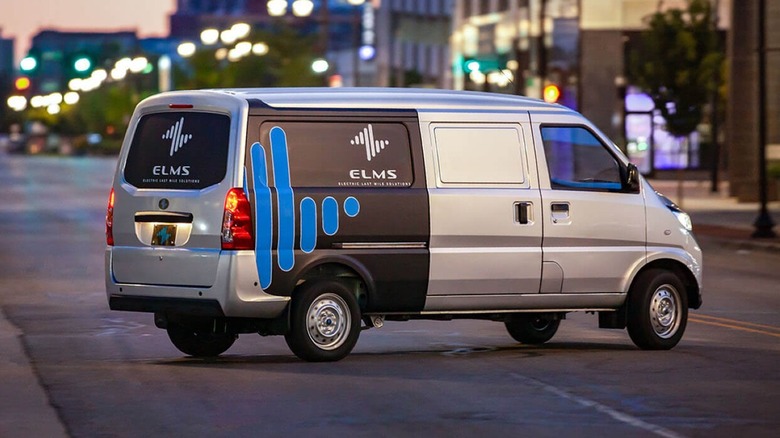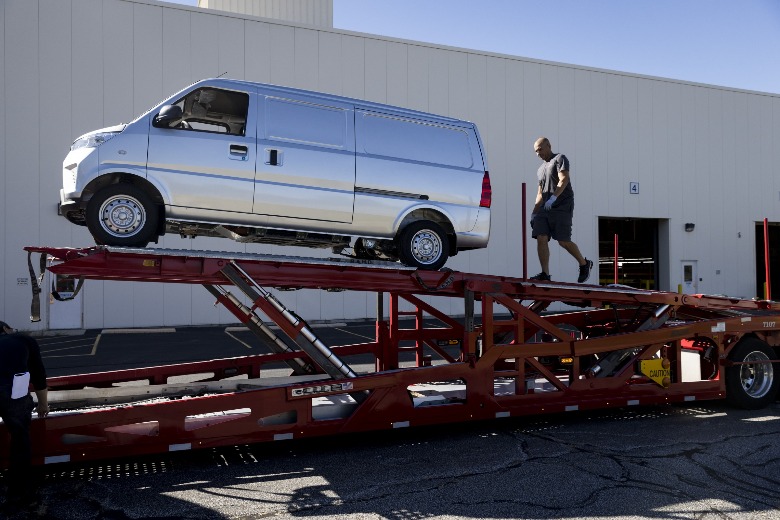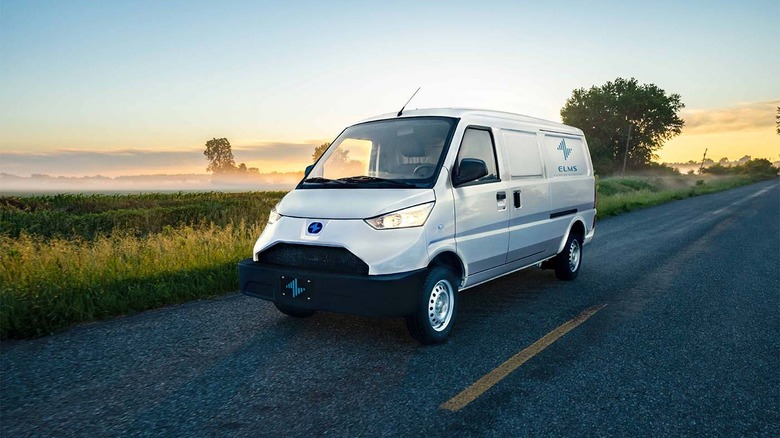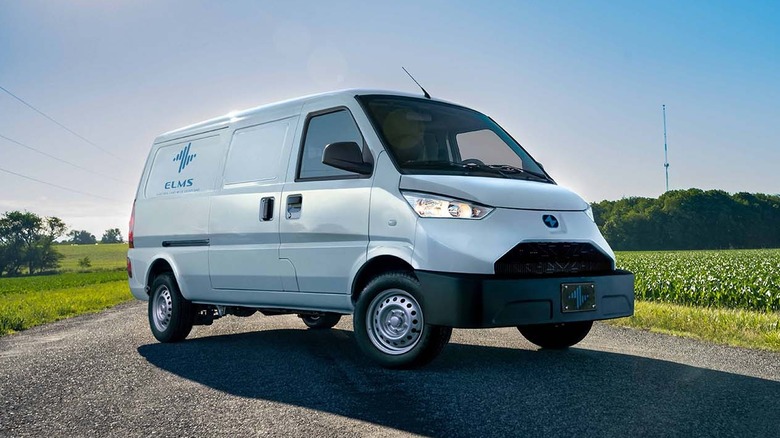The Reason This EV Startup Declared Bankruptcy
Michigan-based EV startup Electric Last Mile Solutions (ELMS) is planning to file for Chapter 7 bankruptcy just 12 months after filing its SPAC IPO last June 2021. ELMS could not secure additional funding since co-founder (and former GM executive) James Taylor and company chairman Jason Luo resigned from their positions in early February 2022. The events immediately caused ELMS share prices to drop more than 67% to less than $2 a share (as per CNBC).
"For the past several months, the ELMS board and the new ELMS leadership team have worked nonstop to address legacy financial, governance, and operational matters at the company, and enormous progress was made, including towards vehicle certification," said Brian Krzanich, ELMS Board Chair, and former Intel CEO. Krzanich's comments refer to the ELMS Urban Delivery electric commercial vehicle, which was supposed to be the first Class 1 electric delivery van in the United States.
With a maximum 2,100 lbs. payload and a 41 kWh battery capable of eking out an EPA-certified 110 miles of range, the ELMS Urban Delivery offered tons of potential for small or medium-sized businesses. And with its $28,000 base price, the Urban Delivery was positioned as a steal for a new, zero-emissions delivery vehicle. It soon got the attention of Los Angeles-based mobility company Zeeba, and the company placed an order for 50 ELMS Urban Delivery vans in December 2021 with the intent to purchase hundreds more by 2022.
Why did ELMS go bankrupt?
According to CNET, ELMS' road to short-lived glory began when companies like Tesla got soaring valuations between 2020 and 2021. American EV pioneer Tesla became the world's most valuable car company in 2020 with an unprecedented $208 billion valuation, surpassing Japanese auto giant Toyota for the crown. Tesla's market success prompted other EV startups like ELMS, Lordstown Motors, Faraday Future, Lucid Motors, Canoo, and Nicola to shortcut an initial public offering (IPO) by merging through a special purpose acquisition company (or SPAC) to go public.
However, the party abruptly stopped when SPAC-backed IPOs ran into financial and legal issues following a crackdown by SEC chairman Gary Gensler and the U.S. Department of Justice in 2021. Gensler began investigating "speculative stocks" with "little to no earnings" while focusing on "disclosures and transparency to retail investors" while the DOJ is looking into issues of fraud, according to CNBC. It brings to mind a decision by a federal grand jury indicting former Nicola CEO Trevor Milton on three counts of fraud after accusing the ex-CEO of "lying about nearly all aspects of the business."
In ELMS' case, its company leaders resigned after an internal probe into their share purchases. CNBC clarified that the resignations at ELMS were not the result of any illegal activity. Still, a public filing to the SEC has pointed to "potentially wrong" or misleading information" about the share purchases. ELMS co-founders James Taylor and Jason Luo gave up 1.8 million shares (valued at $3.3 million) and 6 million shares (valued at $10 million) respectively amidst the investigation.
End of the road
ELMS could not procure additional funds after the untimely resignations of its co-founders, and the former EV startup declared its past financial statements "unreliable." The company appointed board member Shauna McIntyre as ELMS interim CEO and President following the resignations of Taylor and Luo last February. The new leadership team reassessed the company's commercialization plans and product offerings. Still, a pending SEC investigation about the Taylor's and Luo's share purchases made it "extremely challenging to secure a new auditor and attract funding," said ELMS in its press release.
"Unfortunately, there were too many obstacles for us to overcome in the short amount of time available. I could not be prouder of what our team has been able to accomplish under very challenging circumstances," said Shauna McIntyre, interim ELMS CEO. The ELMS board plans to liquidate all company assets via Chapter 7 bankruptcy. "I'm very disappointed by this outcome because our ELMS team demonstrated incredible determination to get our electric vans ready to meet the critical need for clean, connected vehicles that reduce carbon emissions from ground transportation," added McIntyre.



